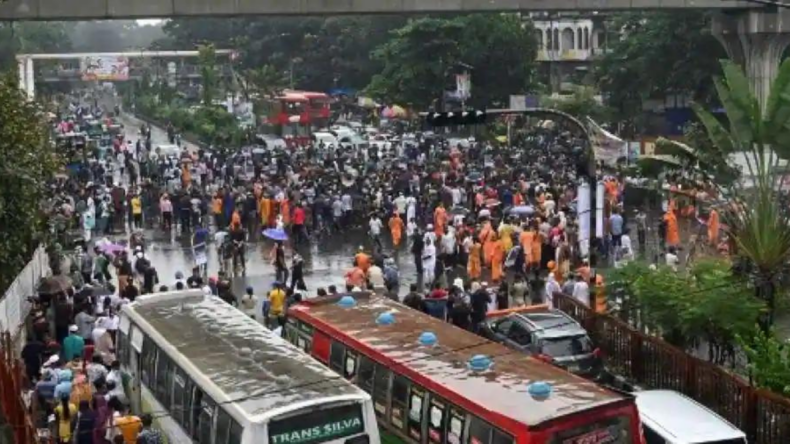The development of Anti-Hindu violence in Bangladesh is unfortunate, which is not new but rather a strategically timed event.
Why is anti-Hindu violence happening in Bangladesh? The attack on the Hindu population in Bangladesh is against the values cherished in the constitution of Bangladesh. It is an alarming sign of the increasing and continuous influence of Islamic groups, which hamper the secularity of the state since its establishment.
Along with six civilian casualties, temples, residences, and businesses of the Hindu minority have been damaged. On Thursday, Bangladesh’s Prime Minister, Sheikh Hasina, promised that the people responsible for the violence would be “hunted down” to devotees at a Hindu temple in Dhaka.
Cross-border Tremors:
Religious polarization in any part of Southeast Asia affects the subcontinent as a whole. It cannot be ruled out as a mere coincidence that the violence on Hindus in Kashmir coincided with the Anti-Hindu riots of Bangladesh.
The motive of anti-secular religious communities has always been to deepen the divide between communities in India, which was never organically woven in the roots of the country. It is a pre-planned act by particular communities having transnational links.
The world has seen several examples of how the infringement of rights or freedom and liberty in one place sends tremors around the globe and especially to the most proximate neighbours. The Supranational bodies are perhaps the outcome of this realization only. It is flawed to think that nations or Bangladesh, per se, will survive this violence unhindered. Violence under the aegis of religion has the intrepidity to dive into and pollute politics.
Better than any other nation, India is the bystander of how internal conflicts in the state spill over the other states. India’s intervention in Pakistan’s internal tumults at the time of partition led to the breakdown of Pakistan into two and, thus, the eternal strife of India and Pakistan. Ergo, India should act as an embankment of Secularism by re-affirming it even more deeply instead of promoting a ‘Hindutva’ ideology or a ‘Hindu-first’ state.
Stand of a ‘macho power’:
The official stand of India in the revolts is expected and conventional, but considering India as a massive macho power that will be unaffected by this development is unwary. It will be myopic not to prioritize Southeast Asia and vex India’s socio-political conditions.
India’s extent of secularity is eroding along with its neighbours. It will not be heedless to say that India needs to re-establish its control over the diversity of the subcontinent. The destiny of Southeast Asia are interlinked together, and the need to re-affirm India’s faith in an egalitarian social outlook is becoming much more vital than ever before.

The Origin of Communalism:
Communalism is a modern phenomenon that has its roots in the contemporary colonial socio-economic, political structure. It is based on the primary belief that one religion’s socio-economic, secular, and political interests are dissimilar and divergent from the followers of the other. It originated as a need to rule people in separate groups in case of a weighty united congregation; for instance, the policy of divide and rule produced a diverging effect between the Hindus and Muslims of India.
“Religion is not the cause of Communalism, nor is Communalism inspired by religion”
Communalism involves religion to the extent that it serves politics in non-religious spheres and trades two completely different spheres, i.e., politics and religion.
Therefore, Secularism is the crossroad where Communalism disappears in an abundance of equality. Secularism is in no way opposed to religion, and it only confines the aspect of religion to an individual’s private life and removes it from politics and the nation.
Trending News:- Delhi court proves again by quashing the petition filed to uphold justice for sexual abuse crimes against children.













